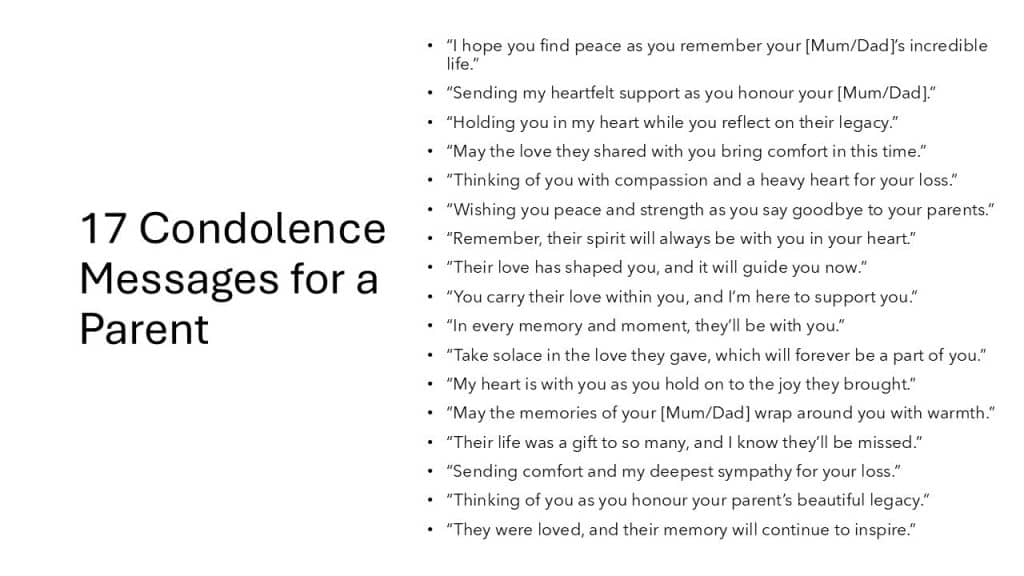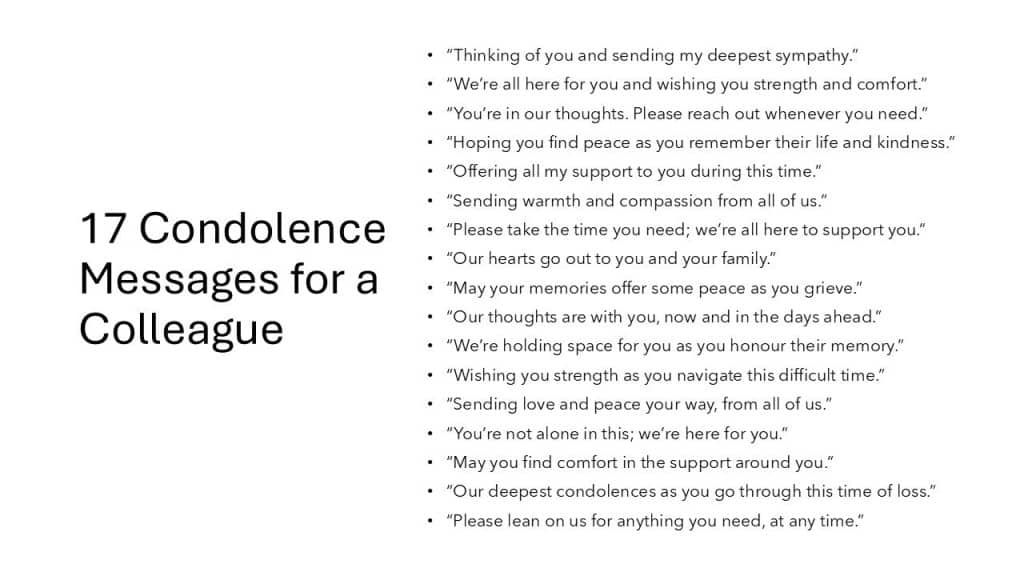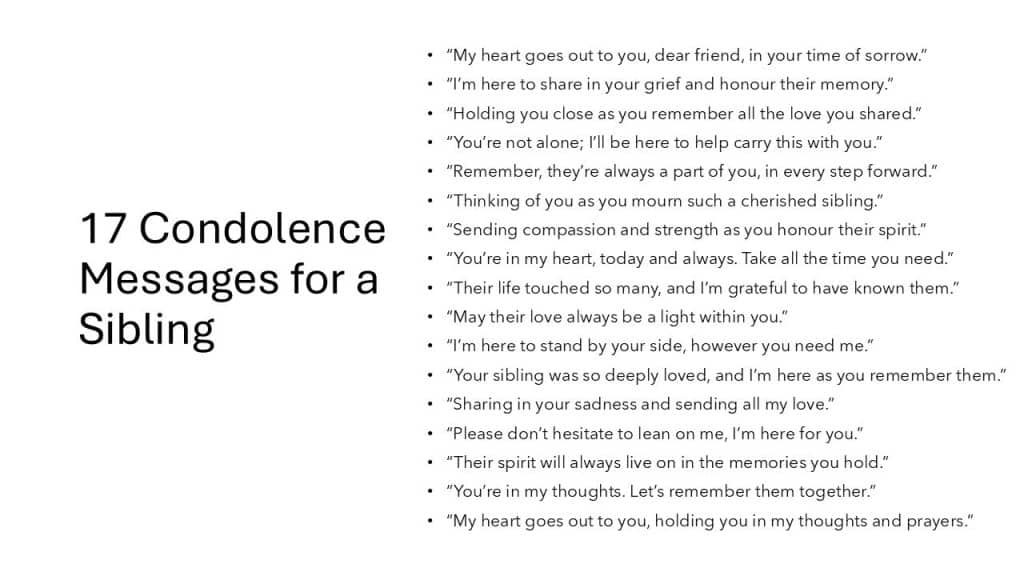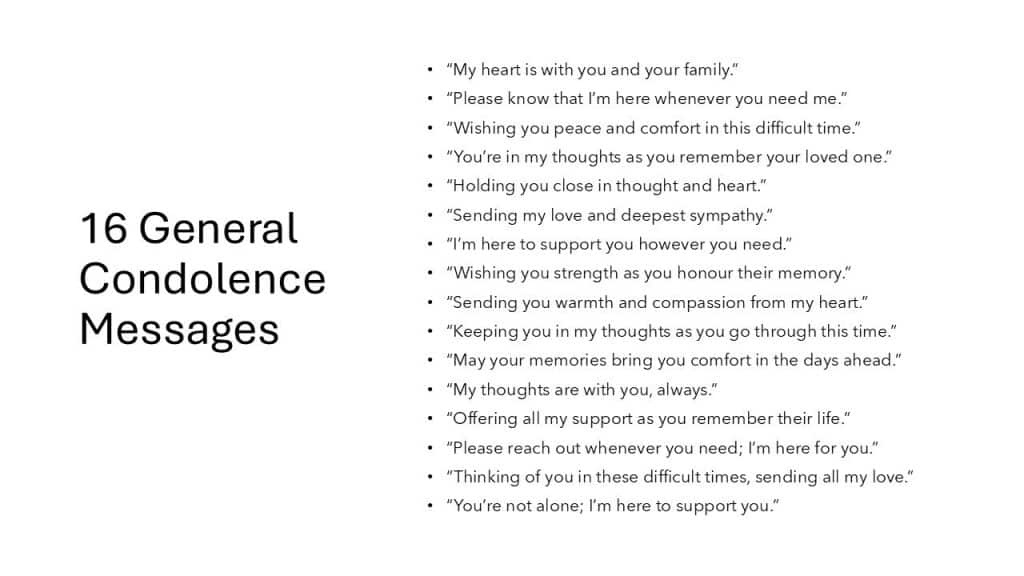In times of loss, a heartfelt condolence message can provide comfort and solace to those grieving. It’s a way to express sympathy, show support, and acknowledge the pain of others. This article will guide you through the essential dos and don’ts of writing a condolence message, ensuring that your words resonate with sincerity and compassion.
Need a professional funeral service in Singapore? Check out Memorial Funeral now!

What to Say and What Not to Say: Dos and Don’ts
Finding the right words to say during tough times can be a bit tricky. You want your message to comfort, but it’s easy to accidentally say something that misses the mark.
Let’s break down some helpful phrases to include and a few things to skip. Read further to our 100 examples of short condolence messages!
What to Say
When writing a condolence message, aim for phrases that convey genuine comfort and understanding. Thoughtful words can help the bereaved feel supported during an incredibly difficult time. Here are five essential rules to guide you:
1. Be Sincere and Direct:
Use straightforward language to express your heartfelt sympathy. Avoid flowery or overly complicated words—simplicity can often carry the most profound meaning.
Example: I’m so sorry for your loss.
2. Acknowledge the Deceased
Include the name of the deceased if you knew them well. This personal touch not only honours their memory but also shows that you truly care.
Example: I will never forget [Name] for their kindness.
3. Express Your Support
Reinforce your availability to help or listen, making it clear that they are not alone in their grief. This reminder can provide significant comfort during overwhelming times.
Example: You are in my thoughts during this difficult time. If you need someone to talk to or anything else, I’m always here for you.
4. Share a Fond Memory
If appropriate, recalling a special memory of the deceased can add a warm, personal element to your message. It honours their life and showcases the positive impact they had on others.
Example: I’ll always cherish the time we spent together at [event/place].
5. Offer Comforting Reassurance
Remind the bereaved that they are not alone in their grief, which can help alleviate feelings of isolation.
Example: I’m here for you, and I care about you deeply.
What Not to Say
When crafting your condolence message, it’s crucial to avoid phrases that could unintentionally hurt or dismiss the grieving person’s feelings. Missteps can lead to further pain, so here are five pitfalls to steer clear of:
1. Avoid Clichés
Phrases like “They’re in a better place” may feel comforting to some, but they can come off as dismissive to those who are grieving.
Such statements might trivialise the bereaved’s experience of loss. Instead, focus on acknowledging their current pain, as this recognition validates their feelings.
2. Refrain from Comparisons
Saying “I know how you feel” can imply a complete understanding of their unique situation, which is often impossible.
Grief is completely personal, and no two experiences are entirely the same. Instead, express your compassion without presuming to fully comprehend their feelings.
3. Don’t Offer Unsolicited Advice
Statements like “You need to be strong” or “Time heals all wounds” can inadvertently shift the focus from the bereaved’s feelings to societal expectations of grief.
Rather than offering advice, simply express your sorrow and willingness to listen.
4. Skip Overly Optimistic Statements
Avoid comments that imply the bereaved should feel better soon, such as “Look at the bright side,” as they can feel invalidating during deep sorrow.
Instead, acknowledge the difficulty of their situation and offer your support, recognising that healing takes time.
5. Stay Away from Religious Assumptions
If you’re unsure of the bereaved’s beliefs, avoid phrases like “God needed another angel,” which can be uncomfortable or offensive.
Instead, focus on sharing your sympathy without invoking specific religious sentiments, ensuring that your message is respectful and inclusive.

100 Examples of Short Condolence Messages
Finding the words for a condolence message can be tough. When emotions are raw, it’s easy to feel that nothing sounds quite right. But remember, even a simple, heartfelt line can mean the world to someone grieving. Just letting them know they’re not alone can bring immense comfort.
Here are some thoughtful examples for different relationships to help you express your sympathy sincerely and supportively:







Why You Need to Write a Condolence Message
Writing a condolence message can really help someone who’s going through a tough time. When you take a moment to send a message, you’re showing them that they’re not alone in their grief.
It’s not about finding fancy words—it’s about letting them know you care. Even a simple note can bring a little comfort and warmth. It helps to remind them that they have people who are thinking of them. So, don’t stress too much about what to say—your kindness is what will really shine through.
Conclusion
As you draft your condolence message, remember that sincerity and intention are what truly matter. It’s less about perfect wording and more about showing you care. Let your heart guide your words, and you’ll surely offer comfort to those who need it most.
Need a professional funeral service in Singapore? Check out Memorial Funeral now!









